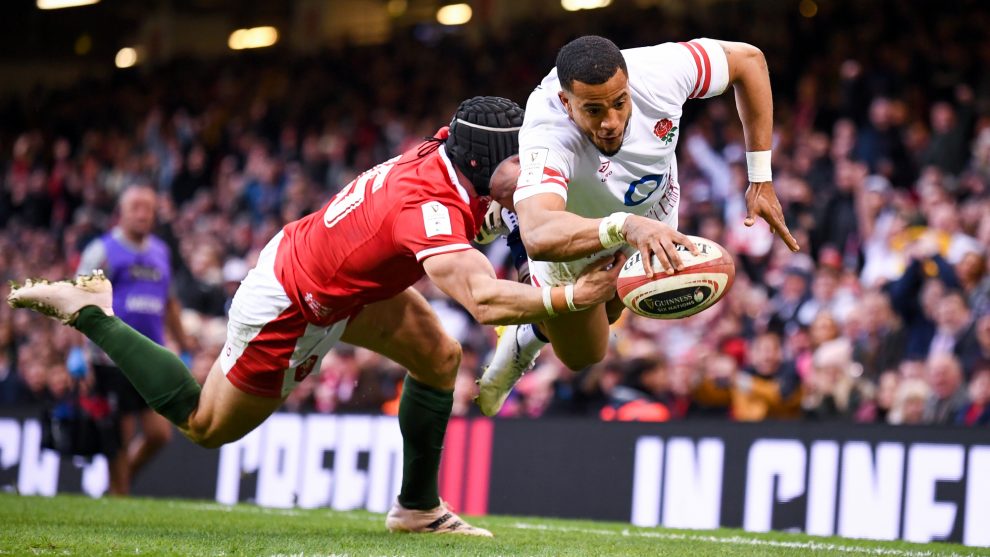THE WELSH have slow ball from the ruck. Williams kicks. Steward comes up from full-back, catches and makes twenty metres.
And there’s the match report for Wales-England.
That oversells the quality of the spectacle.
Wales lost 20-10, losing their first three opening fixtures in this year’s Six Nations, and languish at the bottom of the table with the on-the-up Italians up next week. Wales must improve markedly against the Azzurri to avoid the Wooden Spoon.
Three years wasted since Gatland last coached Wales has done the national team no favours and left coach Warren Gatland trying to spin gold from straw.
NOT A THRILLING SPECTACLE
Wales-England was a poor-quality game from two sides in transition, trying to find a way to play.
Wales played like a side low on confidence and struggled to manage the game when they had good field position. The English were simply less bad.
The worst thing about the defeat is that England played poorly yet won by ten points. If Owen Farrell’s place-kicking hadn’t gone awry, it would’ve been twenty points.
And, again, Wales had opportunities to score that poor decision-making and handling let go.
Leaving aside the stream of easily-fielded box kicks straight down the England full-back’s throat, other aspects of Wales’s play and performance were disappointing.
THE DOWNSIDES
Owen Williams was anonymous at out-half. Not bad. Just anonymous.
The team was also predictable in attack. One-two-three phases, each yielding an increasingly slow ball, allowed the English to reset their defence too easily.
There was very little attacking threat or guile from midfield. However, the Welsh three-quarters often found themselves on the receiving end of slow ball moving laterally from the breakdown, which hardly gave Mason Grady – who looked good in midfield and gave Wales a physical edge when shifted to wing.
Despite the back row delivering individually, they looked unbalanced as a unit. It was a surprise when Christ Tshiunza came off instead of Justin Tipuric, but no more surprising than leaving out Tommy Reffell in the first place. And Wales coughed up two poor lineout turnovers. Again.
THERE WERE UPSIDES, HONEST!
However, there were also positives. Leigh Halfpenny showed he is still a test player of quality. When Owen Tompkins came on in midfield, he showed the snap and handling skills Wales lacked beforehand. Louis Rees-Zammit looked sharp and was a constant threat whenever the ball got to him.
The most positive aspects of Wales’s game were improved discipline – Liam Williams – and a stubborn commitment in defence. England swarmed all over Wales in the first half, but for all their pressure, position, and possession, went in only five points up. And Wales could have easily gone in at the break ahead had they successfully converted pressure on the English line in the half’s closing minutes into points.
ENGLAND’S PRESSURE GAME TELLS
England’s failure to capitalise on their supremacy in the first forty minutes returned to haunt them in the second half’s opening minutes. An attempt to run the ball from halfway succeeded in finding Louis Rees-Zammit standing almost stock-still in midfield. The Gloucester flyer grabbed the ball and streaked down the pitch unopposed, leaving Leigh Halfpenny a straightforward conversion that put Wales ahead 10-8.
The lead proved short-lived. The English applied pressure almost straight from the restart. After working the ball quickly through phases, they were rewarded when Kyle Sinckler muscled through a pile of bodies to touch down near the Welsh posts.
Wales came again, though, and tried their best to get field position to build pressure. However, errors crept into Wales’s play in the face of an unyielding English defence and greater composure. The side’s game management was collectively poor, and – as this article’s opening suggests – Wales persisted with an ineffective kicking game far beyond the point when the penny should have dropped that it wasn’t working.
Freddie Steward, the English full-back, is renowned for being secure under the high ball to the extent that opposition sides avoid kicking the ball where he is. He won man of the match despite offering little besides his aerial ability and a safe pair of hands.
Another Welsh error while in possession resulted in the game’s decisive try. England camped inside the Welsh 22, turning the screw through phase after phase, sucking in the Welsh defence until replacement scrum-half Alex Mitchell sent the ball left. It ended up in Ollie Lawrence’s hands, who sprinted over for the try from close range.
At 20-10, Wales had no way back, you couldn’t fault the players’ efforts to produce a grandstand finish, but England closed out the game with relative ease to seal their first victory in Cardiff since 2017 and widest victory margin there since 2003.
BORTHWICK CREDITS WELSH EFFORT
England’s coach, Steve Borthwick, complimented the Welsh players’ commitment.
“You’ve got give those Welsh players enormous credit. To go through what they’ve gone through and put in a performance like that, they deserve enormous respect.”
After the game, Warren Gatland said: “I can’t be critical of the effort they put in out there. They tried really hard.”
The Welsh coach continued: “I think we can be critical of ourselves in creating a lot of problems for ourselves by not being accurate in key moments. That’s what Test rugby is about. You’re in that arm wrestle. We’ve spoken about being hard on ourselves. I was pleased with some improvements.
“There’s definitely some things that we need to work hard on. It’s probably when a team is going well with confidence, it’s the big moments you nail like a lineout. We’re not miles away, but in those crucial moments, we might lose a lineout or turn it over. We’re hurting ourselves at the moment. We saw again tonight that it’s an area we need to get better at.”


















